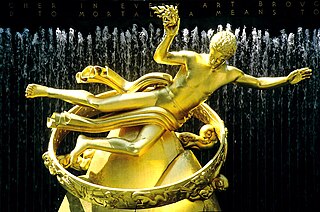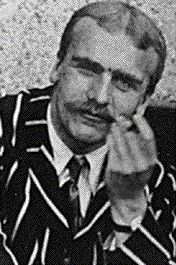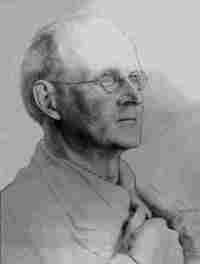
Posthumanism or post-humanism is an idea in continental philosophy and critical theory responding to the presence of anthropocentrism in 21st-century thought. Posthumanization comprises "those processes by which a society comes to include members other than 'natural' biological human beings who, in one way or another, contribute to the structures, dynamics, or meaning of the society."

Transhumanism is a philosophical and intellectual movement that advocates the enhancement of the human condition by developing and making widely available new and future technologies that can greatly enhance longevity, cognition, and well-being.

Natural science is one of the branches of science concerned with the description, understanding and prediction of natural phenomena, based on empirical evidence from observation and experimentation. Mechanisms such as peer review and reproducibility of findings are used to try to ensure the validity of scientific advances.

John Burdon Sanderson Haldane, nicknamed "Jack" or "JBS", was a British-Indian scientist who worked in physiology, genetics, evolutionary biology, and mathematics. With innovative use of statistics in biology, he was one of the founders of neo-Darwinism. Despite his lack of an academic degree in the field, he taught biology at the University of Cambridge, the Royal Institution, and University College London. Renouncing his British citizenship, he became an Indian citizen in 1961 and worked at the Indian Statistical Institute for the rest of his life.

Karl Pearson was an English biostatistician, eugenicist, and mathematician. He has been credited with establishing the discipline of mathematical statistics. He founded the world's first university statistics department at University College London in 1911, and contributed significantly to the field of biometrics and meteorology. Pearson was also a proponent of Social Darwinism and eugenics, and his thought is an example of what is today described as scientific racism. Pearson was a protégé and biographer of Sir Francis Galton. He edited and completed both William Kingdon Clifford's Common Sense of the Exact Sciences (1885) and Isaac Todhunter's History of the Theory of Elasticity, Vol. 1 (1886–1893) and Vol. 2 (1893), following their deaths.
The Omega Point is a theorized future event in which the entirety of the universe spirals toward a final point of unification. The term was invented by the French Jesuit Catholic priest Pierre Teilhard de Chardin (1881–1955). Teilhard argued that the Omega Point resembles the Christian Logos, namely Christ, who draws all things into himself, who in the words of the Nicene Creed, is "God from God", "Light from Light", "True God from True God", and "through him all things were made". In the Book of Revelation, Christ describes himself three times as "the Alpha and the Omega, the beginning and the end". Several decades after Teilhard's death, the idea of the Omega Point was expanded upon in the writings of John David Garcia (1971), Paolo Soleri (1981), Frank Tipler (1994), and David Deutsch (1997).

Science studies is an interdisciplinary research area that seeks to situate scientific expertise in broad social, historical, and philosophical contexts. It uses various methods to analyze the production, representation and reception of scientific knowledge and its epistemic and semiotic role.

Charles Kay Ogden was an English linguist, philosopher, and writer. Described as a polymath but also an eccentric and outsider, he took part in many ventures related to literature, politics, the arts, and philosophy, having a broad effect particularly as an editor, translator, and activist on behalf of a reformed version of the English language. He is typically defined as a linguistic psychologist, and is now mostly remembered as the inventor and propagator of Basic English.
Gerald James Holton is a German-born American physicist, historian of science, and educator, whose professional interests also include philosophy of science and the fostering of careers of young men and women. He is Mallinckrodt Professor of Physics and professor of the history of science, emeritus, at Harvard University. His contributions range from physical science and its history to their professional and public understanding, from studies on gender problems and ethics in science careers to those on the role of immigrants. These have been acknowledged by an unusually wide spectrum of appointments and honors, from physics to initiatives in education and other national, societal issues, to contributions for which he was selected, as the first scientist, to give the tenth annual Jefferson Lecture that the National Endowment for the Humanities describes as, “the highest honor the federal government confers for distinguished achievement in the humanities”.

Charlie Dunbar Broad, usually cited as C. D. Broad, was an English epistemologist, historian of philosophy, philosopher of science, moral philosopher, and writer on the philosophical aspects of psychical research. He was known for his thorough and dispassionate examinations of arguments in such works as Scientific Thought (1923), The Mind and Its Place in Nature (1925), and Examination of McTaggart's Philosophy.

The sociology of scientific knowledge (SSK) is the study of science as a social activity, especially dealing with "the social conditions and effects of science, and with the social structures and processes of scientific activity." The sociology of scientific ignorance (SSI) is complementary to the sociology of scientific knowledge. For comparison, the sociology of knowledge studies the impact of human knowledge and the prevailing ideas on societies and relations between knowledge and the social context within which it arises.

James J. Hughes is an American sociologist and bioethicist. He is the Executive Director of the Institute for Ethics and Emerging Technologies and is the associate provost for institutional research, assessment, and planning at UMass Boston. He is the author of Citizen Cyborg: Why Democratic Societies Must Respond to the Redesigned Human of the Future and is currently writing a book about moral bioenhancement tentatively titled Cyborg Buddha: Using Neurotechnology to Become Better People.
Sal Restivo is a sociologist/anthropologist.

David Edward Hugh Jones was a British chemist and writer, who - under the pen name Daedalus - was the fictional inventor for DREADCO. Jones' columns as Daedalus were published for 38 years, starting weekly in 1964 in New Scientist. He then moved to the journal Nature, and continued to publish until 2002. Columns from these magazines, along with additional comments and implementation sketches, were collected in two books: The Inventions of Daedalus: A Compendium of Plausible Schemes (1982) and The Further Inventions of Daedalus (1999).

Politics of Nature: How to Bring the Sciences Into Democracy is a book by the French theorist and philosopher of science Bruno Latour. The book is an English translation by Catherine Porter of the French book, Politiques de la nature. It is published by Harvard University Press.
Nancey Murphy is an American philosopher and theologian who is Professor of Christian Philosophy at Fuller Theological Seminary, Pasadena, CA. She received the B.A. from Creighton University in 1973, the Ph.D. from University of California, Berkeley in 1980, and the Th.D. from the Graduate Theological Union (theology) in 1987.
Hugh Christopher Longuet-Higgins was a British scholar and teacher. He was the Professor of Theoretical Chemistry at the University of Cambridge for 13 years until 1967 when he moved to the University of Edinburgh to work in the developing field of cognitive science. He made many significant contributions to our understanding of molecular science. He was also a gifted amateur musician, both as performer and composer, and was keen to advance the scientific understanding of this art. He was the founding editor of the journal Molecular Physics.
John Joseph Haldane is a British philosopher, commentator and broadcaster. He is a former papal adviser to the Vatican. He is credited with coining the term 'analytical Thomism' and is himself a Thomist in the analytic tradition. Haldane is associated with The Veritas Forum and is the current chair of the Royal Institute of Philosophy.
To-day and To-morrow was a series of 110 speculative essays published as short books by the London publishers Kegan Paul between 1923 and 1931. As Fredric Warburg proudly recalled in 1959:
It was a unique publishing event. Many now distinguished personages made their debut in this series or contributed an early work.

Transhumanist politics constitutes a group of political ideologies that generally express the belief in improving human individuals through science and technology. Specific topics include space migration, and cryogenic suspension. It is considered the opposing ideal to the concept of bioconservatism, as Transhumanist politics argue for the use of all technology to enhance human individuals.













